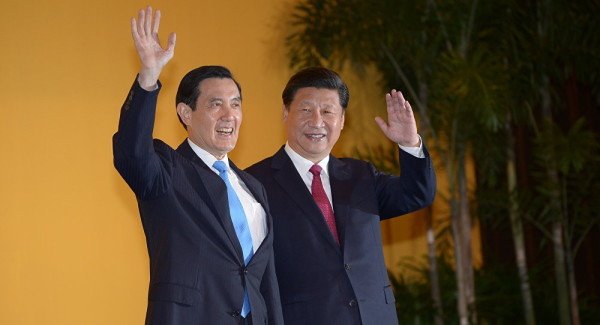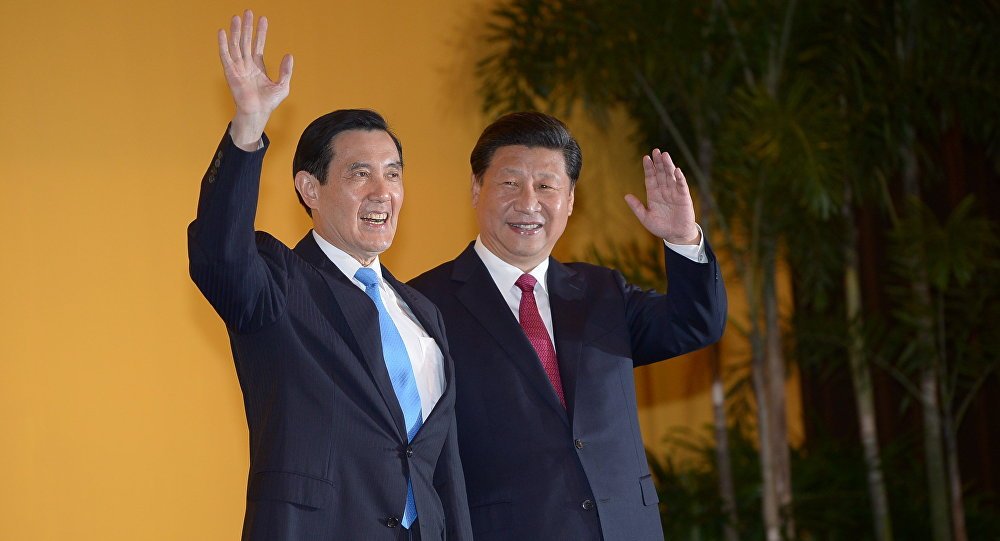China and Taiwan have held historic talks in Singapore – their first in more than 60 years.
Chinese President Xi Jinping and Taiwan’s President Ma Ying-jeou shook hands at the start of the talks, which were seen as largely symbolic.
China views Taiwan as a breakaway province which will one day be reunited with the mainland.
However, many Taiwanese see it as independent and are concerned at China’s growing influence.
“Both sides should respect each other’s values and way of life,” Ma Ying-jeou said as the talks began at a luxury hotel.
Xi Jinping told the Taiwanese leader: “We are one family.”
“The meeting between the leaders across the Taiwan Strait has opened a historic chapter in the cross-Strait relations, and history will remember today,” he added.
The meeting took place in neutral territory on the sidelines of a state visit by Xi Jinping to Singapore.
Relations between China and Taiwan have improved under Ma Ying-jeou since he took office in 2008, with better economic ties, improving tourism links, and a trade pact signed.
The two sides split in 1949 when the Kuomintang lost to the Chinese Communist Party in the civil war and set up a new government in Taiwan.
Ma Ying-jeou described the talks as “positive and friendly”, but no major agreements or deals appear to have been reached.
He said in advance that the issue of the South China Sea disputes, which has dominated recent concerns in the region, would not be brought up.
Xi Jinping raised the issue in a speech at the National University of Singapore before the meeting, saying China has always hoped to settle the disputes peacefully.
Ma Ying-jeou proposed reducing hostility across the Taiwan Strait, expanding exchanges and establishing a cross-strait hotline, according to Taiwan’s central news agency.
He said this was part of consolidating the “1992 consensus” – the agreement under which both sides recognize the principle of “one China” but define it in their own ways.
Similar remarks were made by Xi Jinping, who said upholding the consensus would help “the great rejuvenation of the Chinese nation”.
In Taipei there were protests before the talks and one group tried to enter the Taiwanese parliament building.
AFP said there were arrests at Taipei’s Songshan airport as Ma Ying-jeou left early on November 7, where opponents of closer ties between Taiwan and China tried to set fire to images of the two leaders.
A small group supporting Ma Ying-jeou also turned up at the airport.
State media in China have heralded the meeting, though Taiwan has had a more divided reaction where opposition parties and activists have called for Ma Ying-jeou to back out.
